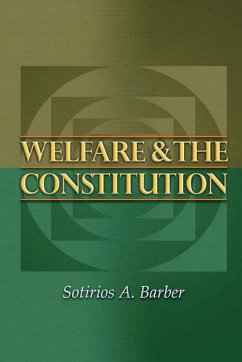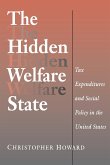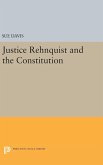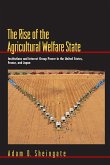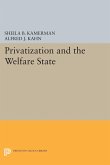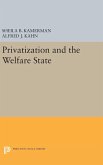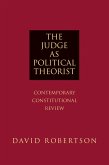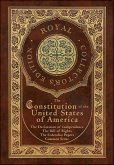Welfare and the Constitution defends a largely forgotten understanding of the U.S. Constitution: the positive or "welfarist" view of Abraham Lincoln and the Federalist Papers. Sotirios Barber challenges conventional scholarship by arguing that the government has a constitutional duty to pursue the well-being of all the people. He shows that James Madison was right in saying that the "real welfare" of the people must be the "supreme object" of constitutional government. With conceptual rigor set in fluid prose, Barber opposes the shared view of America's Right and Left: that the federal constitutional duties of public officials are limited to respecting negative liberties and maintaining processes of democratic choice. Barber contends that no historical, scientific, moral, or metaethical argument can favor today's negative constitutionalism over Madison's positive understanding. He urges scholars to develop a substantive account of constitutional ends for use in critiquing Supreme Court decisions, the policies of elected officials, and the attitudes of the larger public. He defends the philosophical possibility of such theories while also offering a theory of his own as a starting point for the discussion the book will provoke. This theory holds, for example, that voucher schemes which drain resources from secular public schools to schools that would train citizens to submit to religious authority are unconstitutional; First Amendment issues aside, such schemes defeat what is undeniably an element of the "real welfare" of the people, individually and collectively: the capacity to think critically for oneself.
Hinweis: Dieser Artikel kann nur an eine deutsche Lieferadresse ausgeliefert werden.
Hinweis: Dieser Artikel kann nur an eine deutsche Lieferadresse ausgeliefert werden.

